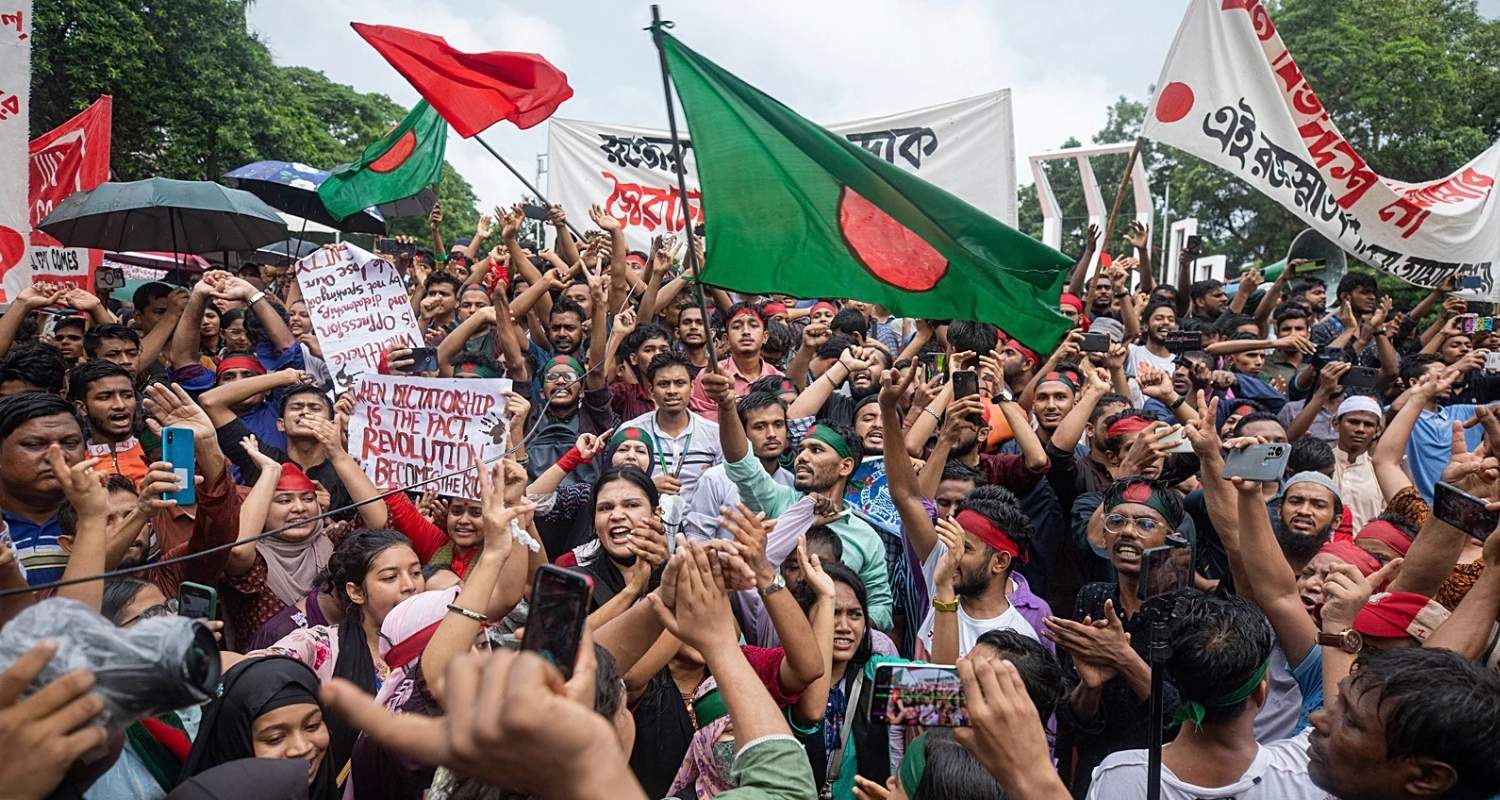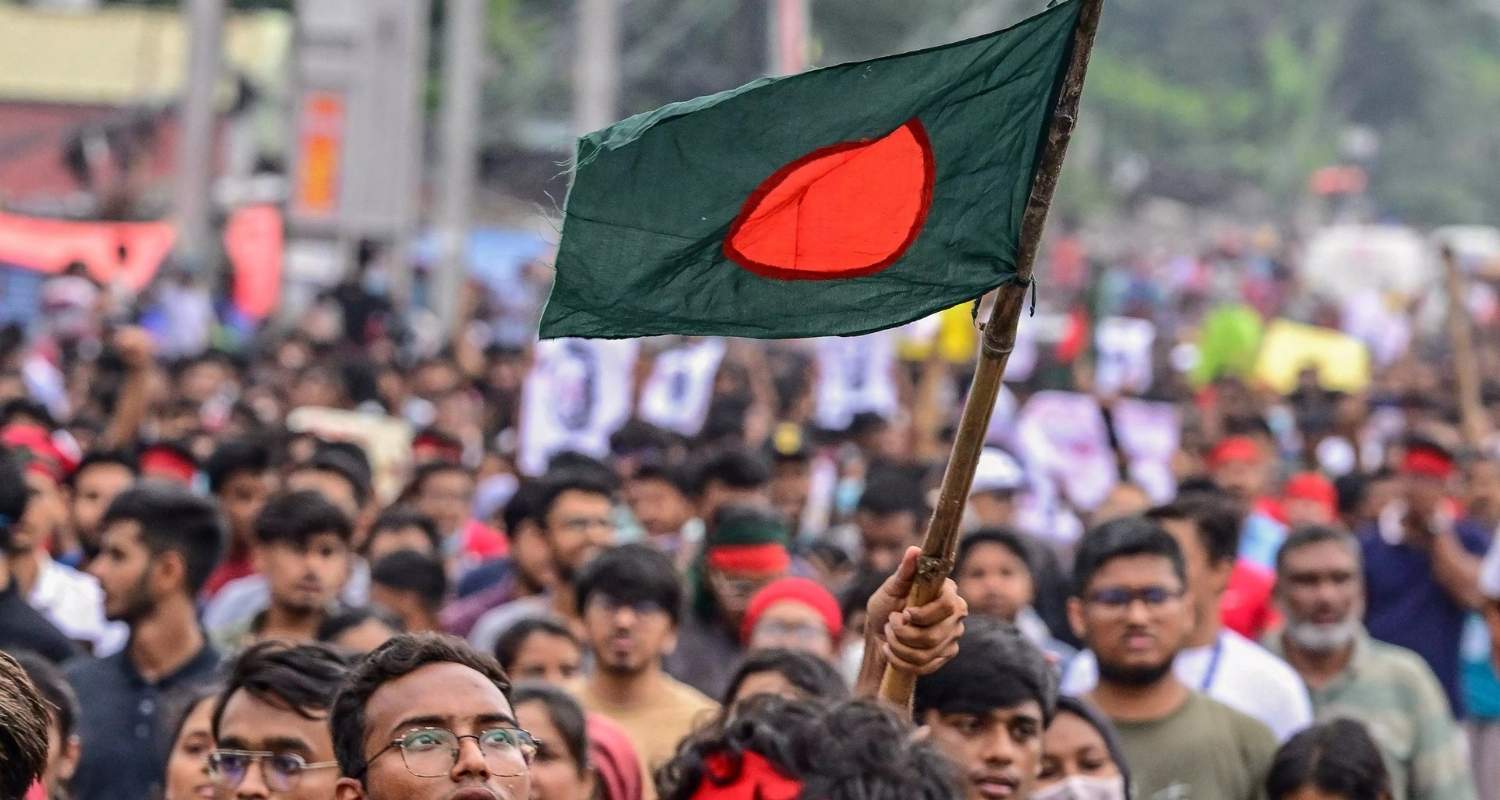Trending:
Sheikh Hasina death sentence is illegal: Sources
According to sources, the proceedings were marred by constitutional violations, questionable judicial appointments, prosecutorial bias, curtailed defence rights, accelerated timelines, politically-charged mass cases, and an overall environment that was incompatible with a fair and impartial trial.News Arena Network - Dhaka - UPDATED: November 24, 2025, 02:32 PM - 2 min read

A file photo of Bangladesh former Prime Minister Sheikh Hasina.
Serious legal, constitutional, and procedural irregularities have cast profound doubt on the legitimacy of the death sentence delivered in absentia to Bangladesh’s ousted Prime Minister Sheikh Hasina by the International Crimes Tribunal-Bangladesh (ICT-B) on October 23.
Knowledgeable sources familiar with the proceedings describe a process riddled with constitutional violations, dubious judicial appointments, overt prosecutorial bias, severe restrictions on defence rights, artificially compressed timelines, an avalanche of politically-motivated cases, and an overall atmosphere wholly incompatible with the minimum standards of a fair trial.
https://twitter.com/ANI/status/1990976223871447444
The very foundation of the Tribunal is legally questionable. The ICT-B operates under the International Crimes (Tribunals) Act of 1973, legislation originally enacted to address atrocities committed during the 1971 Liberation War.
That statute was never designed, and its procedural and evidentiary rules were never adapted, to try alleged offences occurring half a century later. After Sheikh Hasina’s government fell on August 5, 2024, the interim authorities attempted to expand the Tribunal’s jurisdiction through an ordinance.

Legal experts regard those amendments as void ab initio because, at the time the ordinance was promulgated, no constitutionally appointed executive existed, Parliament stood dissolved in a manner widely criticised as irregular, and the president lacked authority under Article 93 of the Constitution to issue such an ordinance without a functioning cabinet or parliamentary sanction. The dissolution of Parliament itself, carried out under intense street pressure rather than established procedure, further tainted the legitimacy of every subsequent legislative or judicial act.
The composition of the Tribunal is equally problematic. On 10 August 2024, a student-led mob surrounded the Supreme Court and issued an ultimatum, forcing the Chief Justice and five Appellate Division judges to resign the following day. In the vacuum that followed, the three current ICT-B judges were appointed through processes that bypassed constitutional safeguards.
Chairman Justice Golam Mortuza Majumder, a retired district judge, was suddenly elevated to the High Court Division only six days before the Tribunal announced it would take up post-August 2024 cases. Justice Mohitul Haque Mohammed Enam Chowdhury, another retired District and Sessions Judge, and Justice Shafiul Alam Mahmud, a practising lawyer, were both made permanent High Court judges without serving the mandatory two-year probationary period required by Article 98 of the Constitution.

Reports indicate that at least twenty-two judges perceived as sympathetic to Jamaat-e-Islami were irregularly promoted to the High Court within a single year. Critically, none of the three Tribunal judges possesses any prior experience in international criminal law, a field requiring specialised knowledge when crimes against humanity and genocide are alleged.
Adding to concerns about impartiality, Justice Shafiul Alam Mahmud openly ran for and won a Supreme Court Bar Association seat in 2019 on the pro-Bangladesh Nationalist Party (BNP) panel, a political affiliation that directly conflicts with the appearance of neutrality in a case targeting the BNP’s historic rival, the Awami League.
The prosecution team itself reveals a striking reversal of roles calculated to ensure conviction. Chief Prosecutor Mohammed Tajul Islam previously served as lead defence counsel for several Jamaat-e-Islami leaders convicted of 1971 war crimes by the very same Tribunal during Sheikh Hasina’s tenure. His appointment, along with that of British barrister Toby Cadman—who also defended Jamaat figures in earlier trials—as Special Adviser to the Chief Prosecutor, strongly suggests the current proceedings are driven by political retribution rather than impartial justice.
On November 18, 2024, barely two months after the first complaints were lodged, the Tribunal ordered the investigation into genocide and crimes against humanity to be completed within thirty days—an impossibly short timeframe that reinforced widespread suspicion that both charges and verdict had been predetermined long before evidence was examined.
Sheikh Hasina and other senior accused were systematically denied the right to counsel of their choice. Hasina repeatedly stated from exile in India that she was not permitted to appoint lawyers. The state-appointed defence lawyer, Md Amir Hossain, openly admitted he never attempted to contact his client, explaining there was “no provision” allowing communication with an absconding accused and that neither Hasina nor her family had contacted him.
Hossain possesses no background in international criminal law. In August 2025, prominent Supreme Court advocate Z.I. Khan Panna sought to represent Hasina, but the Tribunal rejected his vakalatnama during the testimony stage. Compounding the irregularity, the same state lawyer was simultaneously assigned to defend both Sheikh Hasina and the former Home Minister, creating an irreconcilable conflict of interest.
Defence counsel received the full prosecution evidence—running to many thousands of pages—only on June 25, roughly five weeks before the trial commenced, yet inexplicably filed no application for additional preparation time. Throughout the trial, prosecutors successfully invoked a 2013 Appellate Division ruling from the Abdul Quader Mollah case to prevent defence cross-examination of prosecution witnesses on contradictory statements, a restriction the same prosecutors (including Chief Prosecutor Tajul Islam—had vociferously opposed when Jamaat leaders were on trial.
The trial itself lasted less than three months, from August 02 to October 23, with prosecution witnesses concluding on 8 October—an astonishingly brief period for allegations involving hundreds of deaths and sprawling claims of systematic persecution. After pronouncing the death sentence, the Tribunal refused to provide the defence lawyer with a certified copy of the judgement and informed him that no appeal could be filed while the convicts remained absconding. Legal scholars universally agree that imposing capital punishment through a trial in absentia, particularly when the accused has been denied meaningful legal representation and the right to appear, offends elementary principles of justice.
Since 5 August 2024, Bangladesh has witnessed an unprecedented wave of criminal cases manifestly aimed at the Awami League. More than two hundred cases have been filed against Sheikh Hasina personally, while over 1,170 cases name nearly four hundred former ministers, lawmakers, and party officials—many filed on the same day in different jurisdictions against unnamed “accused” or the same individuals repeatedly.
On 5 December 2024, even before most trials began, the ICT moved to prohibit media outlets from publishing or broadcasting any statement by Sheikh Hasina. Arbitrary arrests without warrants became routine, while individuals affiliated with Jamaat-e-Islami and extremist organisations—including convicted terrorists Lutfozzaman Babar and Jashimuddin Rahmani—were quietly released or granted bail. No charges appear to have been brought for the widespread human rights abuses, including at least eleven reported custodial deaths of Awami League workers, that allegedly occurred after the change of regime. Forensic evidence in many cases has been inconsistent, with recovered bullets not matching police-issued firearms, and several arrested Awami League leaders and their lawyers suffered violent attacks inside court premises.
Also Read: Blasts rock Dhaka ahead of verdict against Sheikh Hasina
Even before formal proceedings commenced, senior officials publicly declared Sheikh Hasina’s guilt. On October 17, 2024, Chief Prosecutor Tajul Islam proclaimed it “a remarkable day” because Hasina had been “at the helm of those who committed massacres, killings and crimes against humanity.” A week later, IT Adviser to the interim government Nahid Islam stated on record that Hasina would return to Bangladesh “only to walk the gallows.” Such statements from the highest levels of the prosecution and administration demonstrate that the outcome was predetermined.
Finally, although Bangladesh has been a State Party to the Rome Statute since 2010, the interim government has conspicuously avoided referring the post-July 2024 events to the International Criminal Court, a step that would have subjected the allegations to independent international scrutiny and, legal observers note, would almost certainly have exposed the evidentiary and procedural weaknesses that permeate the domestic proceedings.
Taken together, these cumulative defects—ranging from an outdated and improperly amended enabling statute, through unconstitutional judicial appointments and overt political bias, to the effective denial of any genuine defence—render the ICT-B’s verdict against Sheikh Hasina legally unsustainable and constitutionally void.
Also Read: Ex-PM Hasina sentenced to death for ‘crimes against humanity’

